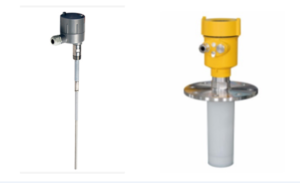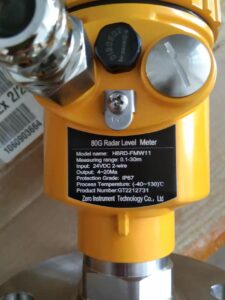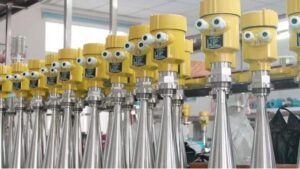What kind of level switch is it? Is it functionally the same as a radar level meter and is it a level measuring instrument?

Level switches are level switches that are used to detect whether the level being measured has reached a specific height and to issue a corresponding limit signal. By definition, level switches and radar level meters do not belong to the same type of instrument, as level switches are control instruments and radar level meters are measuring instruments.
The control switch mainly sends out an alarm signal when the liquid medium exceeds the high level and stops conveying the medium; when it is lower than the set low level, it sends out an alarm signal and the liquid starts conveying.
A radar level meter is mainly used to monitor and control the liquid level in the container (storage tank) so that it is maintained at a certain height or within a certain range as required by the process.
From this point of view, the radar level meter is somewhat like an upgraded version of the level switch. Monitoring the liquid medium in the vessel can well regulate the inflow and outflow of liquid to keep it in balance.

From the definition of radar level meter and level switch, it can be seen that level switch and radar level meter belong to different types of instruments, but there are also similarities between the two. For example, the classification is the same. There are two types of radar level meter, contact and non-contact, and there are also two types of level switch, contact and non-contact.
Non-contact radar level meters mainly refer to high-frequency radar level meters and FM radar level meters, while contact radar level meters guide wave radar level meters.
A typical representative of non-contact level switches is the capacitive level switch; a typical representative of contact level switches is the float level switch.

As the saying goes, “Everything that exists has a purpose for existing”. Different types of instrumentation have different roles to play. Whether it is a radar level meter or a level switch, when choosing one, it is important to consider all aspects (working conditions, costs, requirements, etc.) and choose the most suitable one.
If you really have no choice, you can consult a professional, who will give you reasonable advice for your situation.
